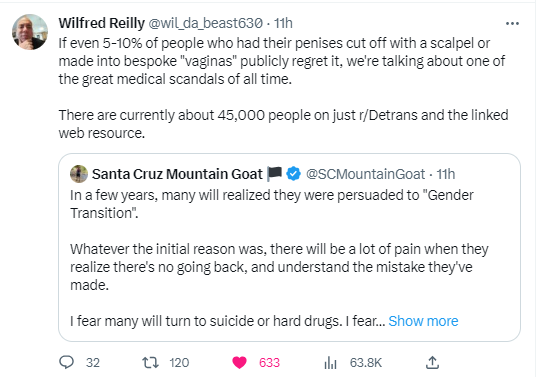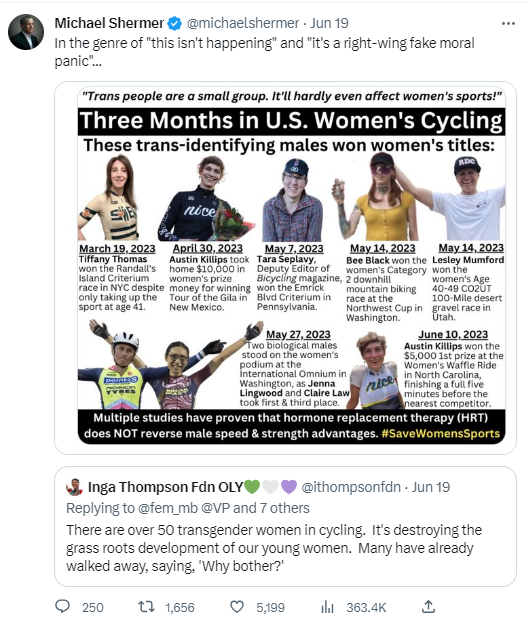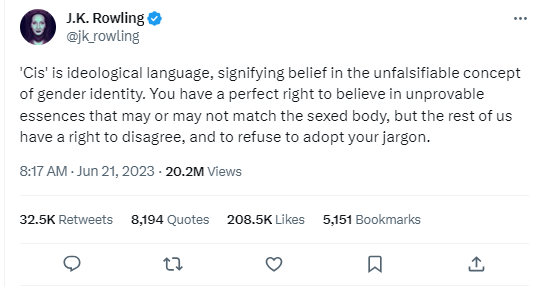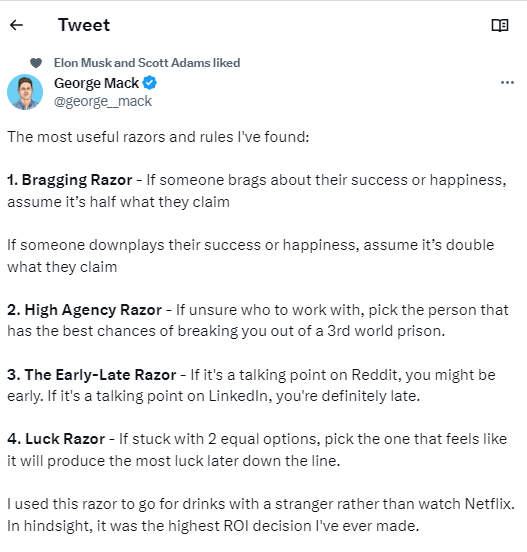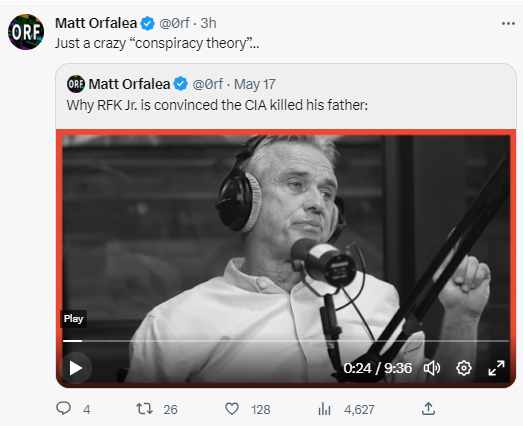How Gender Ideology Escaped the Lab to Become a Treatment Protocol
How did such a flimsy theory become an on-the-ground preferred treatment for so many health care providers? How did it come to be that so many highly trained doctors will surgically remove healthy body tissue of teenagers or inject them with cross-sex hormones, thus making them infertile? Dr. Stephen Levine, a clinical professor of psychiatry at Case Western Reserve University, explains at Public:
[A] vast chasm that exists between affirmative care doctors who believe that medical interventions should be the first line of treatment for people suffering from gender dysphoria and those like Levine who remain committed to the Hippocratic Oath to first do no harm.
“It’s been for over 2,500 years that we in medicine, we have said we do not remove healthy tissues, and we do not alter the physiology of the body,” he explains, adding that there is no data to suggest that a child who undergoes medical transition can grow up to have a full, happy, accomplished life. “It’s a belief system…and beliefs are not what parents want from doctors. They want to know what the facts are, and part of the facts is the uncertainty of outcome.”
Given that existing long-term data indicate that the “suicide rates of adult transsexuals are much higher than the suicide rate of the general population, not slightly higher, much higher,” Dr. Levine is horrified by doctors who perpetuate the transition-or-suicide narrative as a way to coerce parents into consenting to their child’s transition... A principle of medical ethics is that interventions need to be based on science, and Dr. Levine argues that the evidence for pediatric medical transition is “pretty lousy.”
The entire child sex change experiment is based on a single “innovative experiment” conducted in a Dutch gender clinic. Dr. Levine explains that innovative experiments are how medicine advances. Someone has an idea, tests it out on a tiny patient group, and if the results are promising, that justifies a more controlled study.
“The innovative experiment with patients demands that we repeat and we refine the method to establish the facts,” he said, explaining that this didn’t happen with the puberty blockers experiment.
The original Dutch study began with 197 children, but 86 were ruled out for reasons of mental disturbance. Of the remaining 111, 41 parents refused to allow their children to take part. Of the remaining 70, only 55 were entered into the final reports, and the researchers only had psychological data on 32 of the 55. There was no control group, and no long-term follow-up, as well as other serious methodological flaws. There was one attempt at replication, conducted at the Tavistock gender clinic in London, and it failed to produce the same supposedly positive result.
But Dr. Levine says the Dutch experiment “escaped the lab,” and rapidly spread into general medical practice via a process called “runaway diffusion,” which is when the medical world mistakes a small innovative experiment for proven practice and a potentially harmful treatment becomes widespread medical practice...
When asked what advice he would give to a teenager seeking medical transition, Dr. Levine replied that he says to the young person, “I know that the most important thing about you is that you’re a human being, and you think the most important thing about you is that you’re a trans person.” He seeks to help his young patients understand that anything that is true about human beings is also going to be true about them, including uncertainty, ambivalence, and the influence of the past on their current identity. And above all, he tells them, “Don’t make your parents the enemy.”



